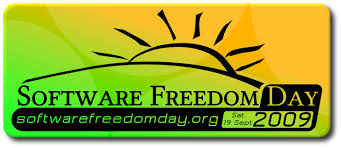


















Stallman began to think in freedom software movement when Brian Reid in 1979 placed "time bombs" in Scribe to restrict access to the software.Stallman said "it is a crime against humanity.".He clarified, years later, that it is blocking the user's freedom that he believes is a "crime".
So,in 1985, Stallman published the GNU Manifesto, which showed his desire to create a free operating system called GNU, that would be compatible with Unix. The name GNU is for GNU's Not Unix. Soon after, he started a non-profit corporation called the Free Software Foundation to employ free software programmers and provide a legal infrastructure for the free software movement.That was the beginning of free software principles.


In August, 1991, Linus announced on Usenet that he was working on this operating system .The announcement was extremely simple it was:
From: torvalds@klaava.Helsinki.FI (Linus Benedict Torvalds)
Newsgroups: comp.os.minix
Subject: What would you like to see most in minix?
Summary: small poll for my new operating system Message-ID: <1991aug25.205708.9541@klaava.helsinki.fi>
Date: 25 Aug 91 20:57:08 GMT
Organization: University of Helsinki
Hello everybody out there using minix - I'm doing a (free) operating system (just a hobby, won't be big and professional like gnu) for 386(486) AT clones. This has been brewing since april, and is starting to get ready. I'd like any feedback on things people like/dislike in minix, as my OS resembles it somewhat (same physical layout of the file-system (due to practical reasons) among other things). I've currently ported bash(1.08) and gcc(1.40), and things seem to work. This implies that I'll get something practical within a few months, and I'd like to know what features most people would want. Any suggestions are welcome, but I won't promise I'll implement them :-) Linus (torvalds@kruuna.helsinki.fi)
PS. Yes - it's free of any minix code, and it has a multi-threaded fs. It is NOT protable (uses 386 task switching etc), and it probably never will support anything other than AT-harddisks, as that's all I have :-(.
Linus uploaded the first version of Linux, version 0.01 in September of 1991. Then Linux belonged to the world and now Linux kernel reveals that the number of lines of all its source code surpasses 10 million !
